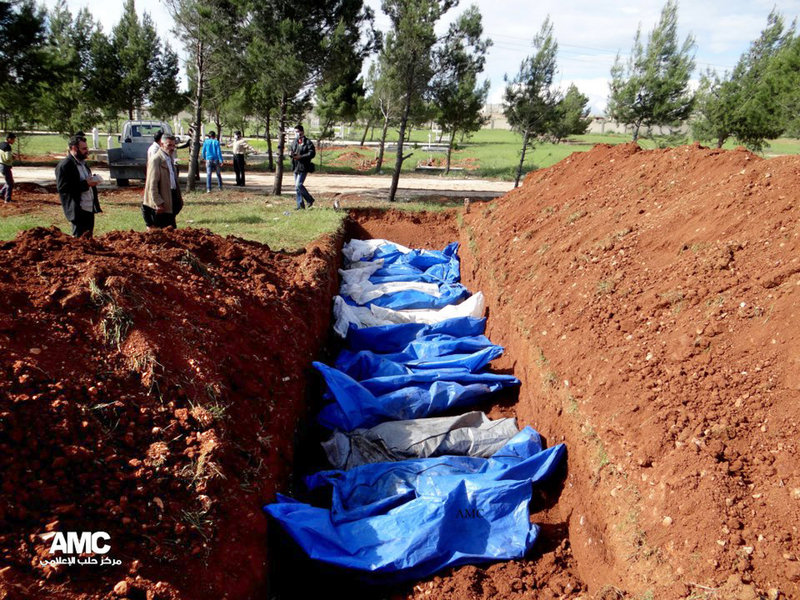BEIRUT – Syrians are being killed at an average rate of 5,000 per month, the U.N. said Thursday as it raised the overall death toll in the civil war to nearly 93,000, with civilians bearing the brunt of the attacks.
The grim estimate reflects the growing sectarian nature of the bloodshed as the regime of President Bashar Assad scores a series of battlefield successes against the rebels.
The toll also is a reminder of the international community’s helplessness in the face of a conflict that has displaced several million people and spilled over into neighboring countries with alarming frequency.
In the latest violence, a mortar round slammed into an area near the runway at Damascus International Airport, briefly disrupting flights to and from the Syrian capital, officials said.
It was the first known attack to hit inside the airport, and highlighted the difficulty Assad faces in maintaining security even in areas firmly under his control.
In Geneva, the U.N. human rights office said it had documented 92,901 killings in Syria between March 2011 and the end of April 2013. But the U.N. high commissioner for human rights, Navi Pillay, said it was impossible to provide an exact number, which could be far higher.
The figure was up from nearly 60,000 through the end of November, recorded in an analysis released in January. Since then, U.N. officials had estimated higher numbers, most recently 80,000. The latest report adds more confirmed killings to the previous time period and an additional 27,000 between December and April.
The conflict began in 2011 as largely peaceful protests of Assad’s autocratic regime. After a relentless government crackdown on the demonstrators, many Syrians took up arms against the regime, and the uprising became a civil war.
The government has gained momentum since recapturing the strategic town of Qusair. Regime forces now appear set on securing control of the central provinces of Homs and Hama, a linchpin area linking Damascus with regime strongholds on the Mediterranean coast, and Aleppo to the north.
Most of the armed rebels in Syria are from the country’s Sunni majority, while Assad has retained core support among the minorities, including his own Alawite sect, an offshoot of Shiite Islam.
The international community has been unable to end the violence and a date for a peace conference proposed by the U.S. and Russia weeks ago has been shelved. U.S. officials had hoped this week to reach a decision on arming Syria’s rebels but they are still uncertain whether that’s the best way to reshape a war that now includes Lebanon’s Hezbollah and Iranian fighters supporting Assad’s armed forces, and al-Qaida-linked extremists backing the opposition.
Send questions/comments to the editors.



Success. Please wait for the page to reload. If the page does not reload within 5 seconds, please refresh the page.
Enter your email and password to access comments.
Hi, to comment on stories you must . This profile is in addition to your subscription and website login.
Already have a commenting profile? .
Invalid username/password.
Please check your email to confirm and complete your registration.
Only subscribers are eligible to post comments. Please subscribe or login first for digital access. Here’s why.
Use the form below to reset your password. When you've submitted your account email, we will send an email with a reset code.